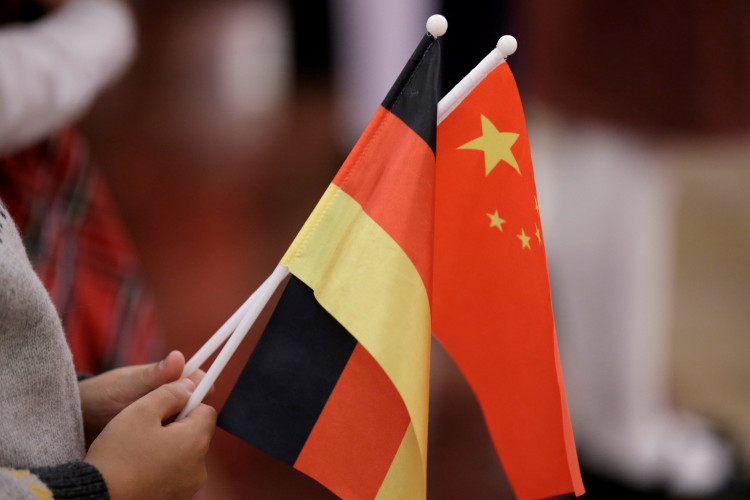German firms have notably intensified their financial engagement with China, setting a new record in direct investments. Official data from the Bundesbank, analyzed by the IW institute, reveals a 4.3% surge in German direct investment into China, reaching an unprecedented 11.9 billion euros ($12.7 billion) last year.
This escalation not only highlights the deepening economic ties between Germany and its largest trading partner but also reflects a growing dilemma for Europe's biggest economy, which is caught between fostering these lucrative relations and heeding governmental advisories to mitigate risks associated with the Chinese market, according to Reuters.
The increase in investment is particularly striking given the broader context in which German companies have channelled as much capital into China in the past three years as they did in the six preceding years. Despite the government's calls for a reduction in exposure and a significant decrease in investment guarantees for China, the allure of the Chinese market continues to draw German capital, albeit with a more cautious approach reflected by a shift towards reinvesting profits and withdrawing capital.
The nuanced landscape of German investments in China is underscored by a dichotomy within the business community. According to Juergen Matthes, an economist at the IW institute, there's a clear division between large corporations and the bulk of small and medium-sized enterprises (SMEs). While the former continue to bolster their presence, a notable portion of SMEs are reevaluating their positions, with some opting to scale back or exit the Chinese market altogether. This sentiment is echoed in recent findings by the German Chamber of Commerce in China, which reported that the proportion of German firms exiting China or contemplating such a move has more than doubled to 9% over the last four years.
This trend of cautious engagement is not confined to the private sector. Within the corridors of German politics, there's a palpable division over the strategy towards China, particularly within Chancellor Olaf Scholz's coalition. The Social Democrats (SPD) favor a less aggressive approach to reducing dependency on China compared to their coalition counterparts, the Free Democrats and the Greens. This political backdrop sets a complex stage for Scholz's upcoming visit to China with a business delegation, signaling the importance of these economic ties and the challenges in navigating them.
Amidst these developments, overall German foreign direct investment experienced a downturn last year, dropping to 116 billion euros from around 170 billion euros in 2022, as the German economy teetered on the brink of recession. Yet, the proportion of investment directed towards China as a share of Germany's total overseas investments climbed to 10.3%, marking the highest level since 2014. This contrast underscores the strategic importance of China to German businesses, even as they navigate the intricate dance of expanding their global footprint while managing the inherent risks of over-reliance on a single market.
As Germany continues to balance its economic interests with geopolitical prudence, the trajectory of its investments in China will remain a closely watched barometer of the broader dynamics shaping international trade and investment flows.





